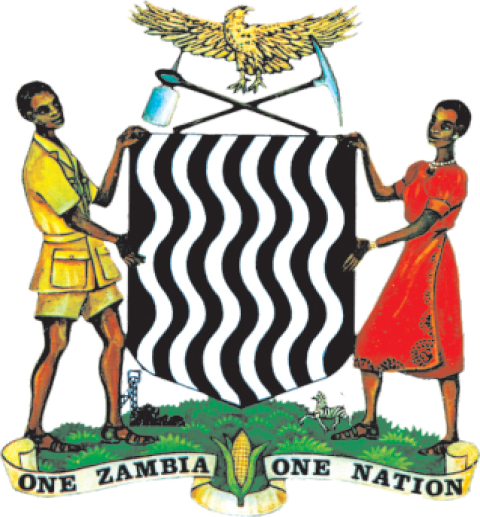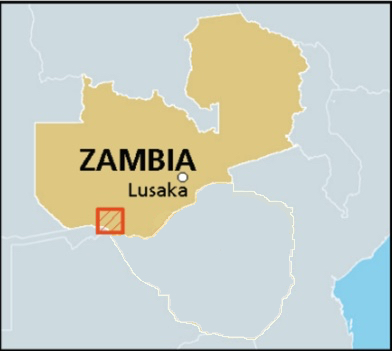Legal Hub/Zambia
LEGAL HUB/ZAMBIA

BACKGROUND
Country legal hubs are a user-friendly point of access to a comprehensive set of data and analysis on the statutory legal frameworks relating to sustainable wildlife management. This includes environmental protection, tenure rights, land use planning, the consumption (hunting and fishing) and non-consumption (ecotourism) use of wildlife, as well as animal production, animal health, and food safety and security.
Each legal hub provides:
- historical and political background on the country;
- access to relevant national normative texts by sector;
- legal assessment of sectoral legislation;
- overview of the domestication of international instruments;
- description of relevant national institutions and their roles.
NATIONAL PARTNER


LEGAL AND POLITICAL CONTEXT

Political system: Republic; Presidential regime; unicameral National Assembly.
Administrative and territorial organization: Unitary state with 10 provinces subdivided into 117 districts. Devolution and decentralization of government powers, with two levels of government: national government (cabinet) also represented at the provincial level and local authorities (urban and rural district councils).
Legal system: General Law (Common Law, Statutory Law) and Customary Law.
International Conventions: Dualist system
Zambia, officially the Republic of Zambia, and formerly Northern Rhodesia (1911–1964), achieved independence on 24 October 1964, after a colonial period that began in 1890. It is a unitary state where government powers are devolved and decentralized.
There are two tiers of government:
• National government with consists of the President, Vice-President, Ministers, and the Attorney General who constitute the Cabinet. The Cabinet is responsible for all government policies and the day-to-day administration of the affairs of State. The Cabinet Office is the highest administrative office in the Public Service responsible for coordinating the effective implementation of Government policies, systems and procedures, and the monitoring and evaluation of the overall performance of the Public Service for the efficient administration of Government. In each Province, Provincial Minister ensures that national policies are implemented in all districts and that the concurrent functions of the province and the exclusive functions of the local authorities are performed in accordance with the Constitution and other laws.
• Local government: urban (city and municipal councils) and rural district councils, composed of elected Mayors or chairpersons and ward councilors.
The Constitution (adopted in 1991, last amendment in 2016) defines Zambia as a unitary, indivisible, multi-ethnic, multi-racial, multi-religious, multi-cultural and multi-party democratic state. The electoral system is based on universal adult suffrage and equality of votes. The executive authority of Zambia vests in the President who exercises it, subject to the Constitution, through the Cabinet. The President is the Head of State and Government, and the Commander-in-Chief of the Defence Forces. The Constitution vests legislative authority in the legislature, which consists of the National Assembly. Judicial authority is vested in the Judiciary, with the Supreme Court and the Constitutional Court being the superior courts of record.
Zambia’s legal system consists of: laws enacted by Parliament; statutory instruments; Zambian customary law consistent with the Constitution; and the laws and statutes that apply or extend to Zambia, as prescribed. The Constitution is the supreme law of the Republic of Zambia and any other written law, customary law or customary practice that is inconsistent with its provisions is void to the extent of the inconsistency. A matter relating to the Constitution shall be heard only by the Constitutional Court.
The laws that may apply or extend to Zambia are provided for in the English Law (Extent of Application) Act : these are (a) the common law; (b) the doctrines of equity; (c) the statutes which were in force in England on the 17 August 1911 (i.e. the commencement of the Northern Rhodesia Order in Council, 1911); and (d) any statutes of later date than that mentioned in paragraph (c) in force in England, now applied to the Republic, or which hereafter shall be applied thereto by any Act or otherwise.
With regard to international conventions, Zambia follows the dualist system (international or regional instruments must be incorporated into internal law by a special enabling statute to become binding) even if the Constitution does not explicitly provide for the status of international law in the Zambian legal system. Article 92 states that ‘the President shall negotiate and sign international agreements and treaties and, subject to the approval of the National Assembly, ratify or accede to international agreements and treaties.’ and Article 63 states that : ‘the National Assembly shall oversee the performance of executive functions (…) by approving international agreements and treaties ‘before these are acceded to or ratified’.
LEGAL FRAMEWORK
This section provides access to a list of statutory instruments specific to each sector that can be consulted and downloaded.
DIAGNOSTIC OF STATUTORY LAW
Detailed legal diagnostics are available on national statutory instruments regulating the following topics
DOMESTICATION OF RATIFIED INTERNATIONAL INSTRUMENTS
INSTITUTIONAL SET‐UP
Institutions |
Roles |
|---|---|
|
Department of National Parks and Wildlife (DNPW)
|
|
|
Zambia Environmental Management Agency (ZEMA)
|
|
|
Department of Fisheries
|
|
|
Zambia Medicines Regulatory Authority (ZAMRA)
|
|
|
Zambia Tourism Agency (ZTA)
|
|
|
Forestry Department
|
|
|
Food Safety Coordinating Committee
|
|







